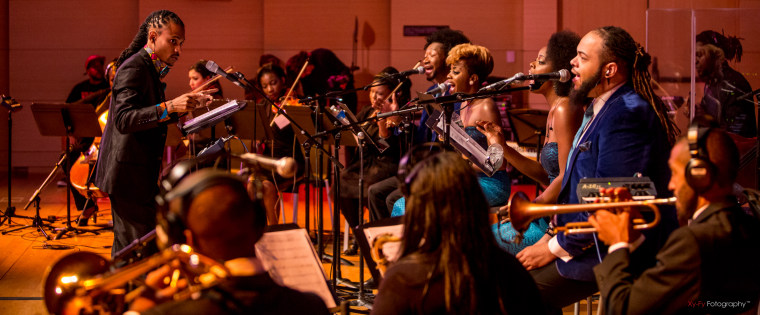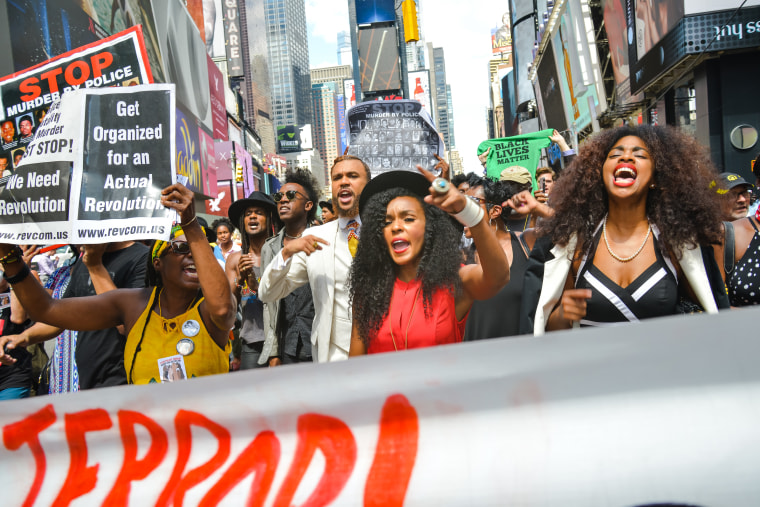Music has come to serve a higher purpose -- whether during rallies, marches or other forms of protest -- throughout much of the Black Lives Matter and Student Black Out movements that swept college campuses around the country last fall.
“Music, the beats, words or dance that extend from it, are a reflection of black joy and love that is present in the movement,” Zellie Imani, a member of the steering committee of Black Liberation Collective, the umbrella for many of the student campus movements, told NBCBLK via email.
According to Imani, youth in Ferguson “would bring their drums to the marches and protestors would dance and chant to the beats.”
“Many of the solutions and answers we need are already in our canon of literature and art...over time we have developed a vocabulary to respond to oppression.”
Olivia Castor, a third year student at Harvard College, where portraits of Black law school professors were defaced with black tape this fall, tells of a moment where music led them to dance in the snow.
“One day last year after one of our rallies someone was blasting music on a loud speaker. An impromptu dance party happened in the midst of all of the snow covering the yard,” she said. “It was a beautiful instance of how we can still find beauty and joy in the midst of the struggle for our freedom.”
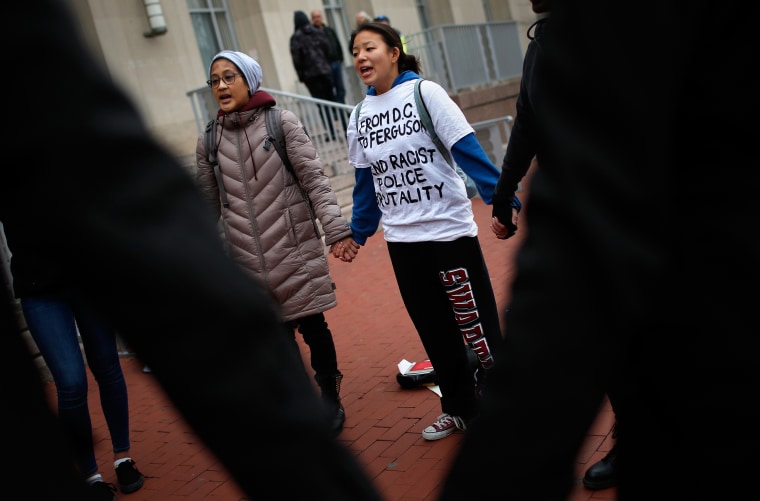
And according to Myles Santifer, a fourth year student at University of California, Berkeley, when they shut down the campus café students could be heard singing the popular ‘Freedom Side’ chant -- “Whose side are you on, we are on freedom side!”
Earlier last year Santifer, a musician and African American studies major, released an album of music driven by the movement titled, Black Power and Flowers.
“There is a lot of pain and drama associated with the history we are trying to combat,” he said. “For me, I utilize art as a space of healing and connection. Music is really a space ultimately for people who are trying to connect.”
The role of music lending power to a movement is nothing new. Historically, black music has provided what Alton Pollard, dean of Howard University’s Divinity School, calls resistance modality for society.
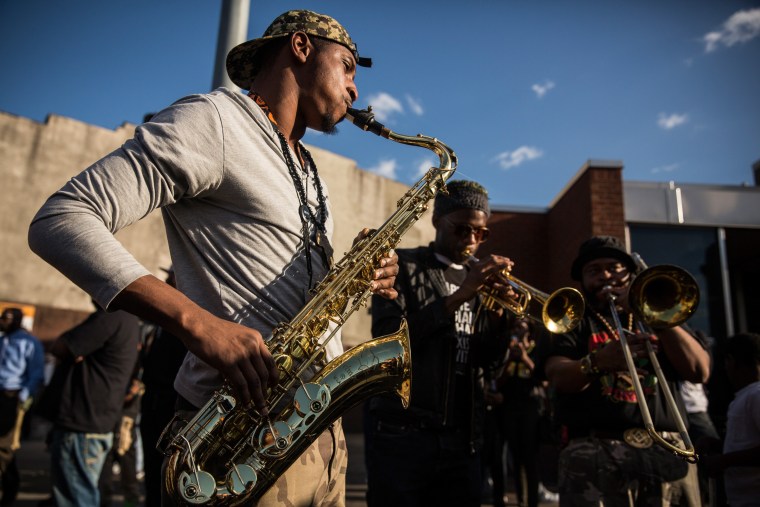
“I think back to my own years growing up as a child of the 50s and 60s and how much of the music we think of today as ‘the Motown sound’ possessed far deeper undertones,” he told NBCBLK. “As African people in this society we are an improvisational people and our music has served as a soundtrack to our experiences.”
We Shall Overcome. I Shall Not Be Moved. Gospel. Negro spirituals. Freedom songs.
“Music, whether in the black church or in the field, was a way to connect and stay connected.”
Music has been integral to the genius of African people during struggles for freedom, said Pollard. He references an old African proverb that says, “The spirit will not move without a song.”
“We have always understood. Martin Luther King, in those last moments before the March on Washington, when he told those around him, ‘Please be sure Mahalia sings Precious Lord and be sure she sing it real pretty,’ music has provided for us that aesthetic resource for expressing who we really are,’ he said.
RELATED: 'Plastic Soul': David Bowie's Legacy and Impact on Black Artists
Present day, Kendrick Lamar’s "We gon be Alright" and Janell Monae's "Hell you Talmbout," have become the latest submissions to the black movement soundtrack, being played in heavy rotation at most rallies and demonstrations, Imani reports.
Understanding the role of music historically and contemporarily, New Orleans native Asante Amin and Chen Lo created what they call a “live music and 3-screen multi-media retrospective of the Civil Rights Movement.”
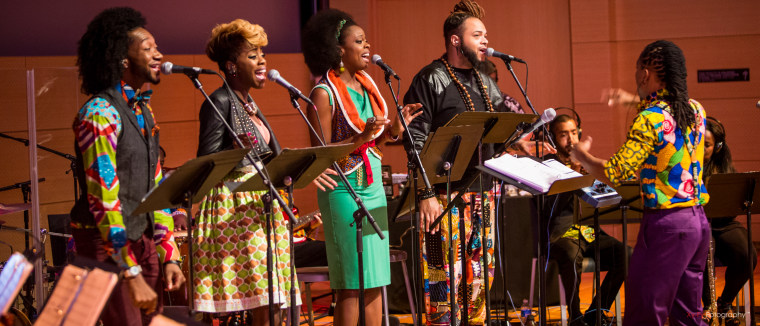
In its fourth installment, Soundtrack ’63 took place to sold-out audiences in New Orleans over the Martin Luther King holiday weekend.
The show bridges the gap between the eras of then and now, and weaves together classical forms of the black musical tradition like Jazz with new forms like hip hop.
“Not only does Soundtrack '63 visually chronicle the pre-civil rights era, civil rights movement and post-civil rights history of African descendants in America, it juxtaposes them so the connections are crystal clear,” said Lo who serves as creative director for Soundtrack ’63. “There is a constant tension between the sentiment, ‘We've come so far,’ and the question ‘How far have we come?’”
Amin, Soundtrack ’63 music director, adds Soundtrack '63 embodies ‘Sankofa’, the Ghanaian belief that it is up to us to look back, seek and fetch.
“Soundtrack ’63 is necessary because it encourages us to remember we must pass on the information, wisdom and knowledge ascertained by our ancestors; we should not be 'reinventing the wheel' every generation, which is the rut I feel like we often fall into,” he said. “Many of the solutions and answers we need are already in our canon of literature and art...over time we have developed a vocabulary to respond to oppression.”
Whether they are the songs of yesterday or the songs of today, what these forms of expressions communicate is the spirit of Africanism.
“Music, whether in the black church or in the field, was a way to connect and stay connected,” Santifer said. “Music has helped us develop language to talk about our oppression. That is the very thing this movement is trying to do, find the language to describe what we are feeling right now. I definitely think music and the organizing we are doing is providing ways for us to figure out that language collectively.”
